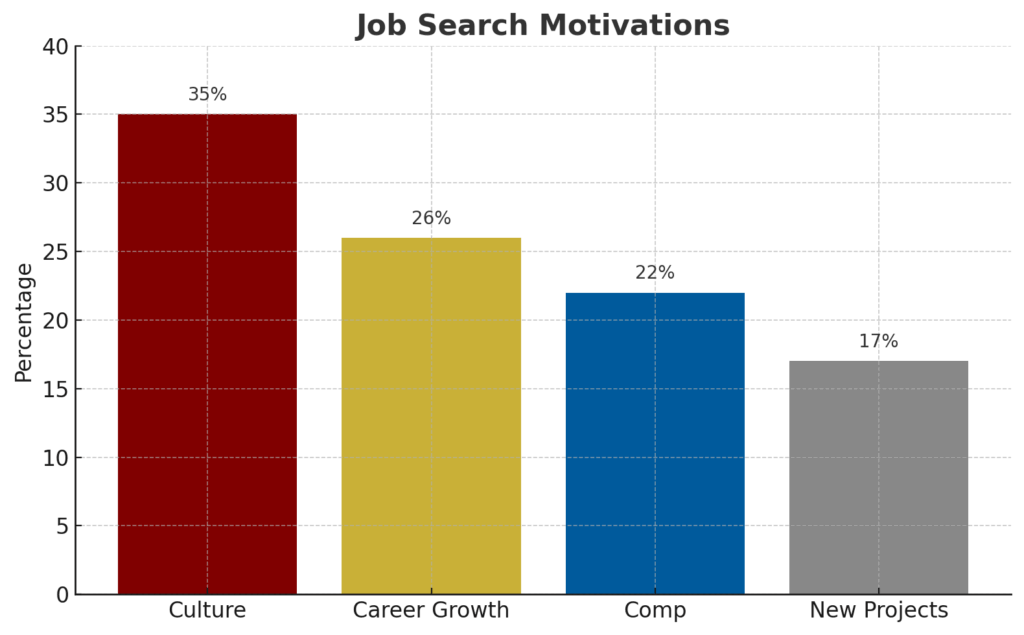If you’re a professional considering a contract role as a pathway to permanent employment, the data is firmly on your side. A recent survey by the American Staffing Association revealed that nearly 60% of temporary and contract workers successfully transition into permanent positions (American Staffing Association), proving that contract-to-hire arrangements are far more than a temporary fix—they’re a strategic career move.
At KeyStaff Professionals, we specialize in placing skilled professionals in Administrative, Accounting & Finance, Human Resources, Engineering, Construction Management, and Customer Service roles throughout the Twin Cities. With over 40 years of combined industry experience, we’ve witnessed countless contract placements evolve into thriving, long-term careers. The key is understanding how the process works and positioning yourself for success.
For employers, the contract-to-hire model offers significant advantages. The median temp-to-perm conversion ratio among large contingent workforce buyers was 10% for North American companies, according to Staffing Industry Analysts (Staffing Industry Analysts). However, for professional-level positions where cultural fit and specialized skills are paramount, conversion rates tend to be even higher when the right candidate meets the right opportunity.
Six in 10 staffing employees (64%) work in the industry to bridge gaps between jobs or to help them land permanent positions (American Staffing Association). For professionals in HR, accounting, and administrative fields, contract-to-hire roles offer a unique opportunity to demonstrate your expertise while evaluating whether a company is the right fit for your long-term career goals.
Understanding Contract-to-Hire Conversion Rates for Professional Roles
Before exploring strategies for success, let’s examine what current data tells us about contract-to-hire conversions in professional settings.
Key Industry Statistics for 2025-2026
- Nearly 60% of contract workers successfully transition into permanent positions, according to the American Staffing Association. (American Staffing Association)
- The median conversion ratio among large companies is 10% in North America, 8% in Asia Pacific, and 5% in Europe. (Staffing Industry Analysts)
- Over 70% of employers use contract-to-hire as part of their permanent hiring pipeline, making it a legitimate and increasingly common path to career advancement. (Constellation Search Group)
- 35% of contract workers are offered permanent positions by their clients, and 66% of those workers accept the offers. (Alliance Employment Services)
- Professional and executive roles often see higher conversion rates due to the specialized nature of the work and the investment companies make in onboarding skilled talent. (Akraya)
For professionals in the Twin Cities market, these statistics represent tangible opportunities. Companies are increasingly using contract arrangements to evaluate fit before making long-term commitments—and savvy professionals are leveraging this trend to land roles at top organizations.

Professional Fields with Strong Contract-to-Hire Potential
Not all professional roles convert at the same rate. Understanding which fields offer the best opportunities can help you focus your job search strategically.
Human Resources
HR professionals are in high demand for contract-to-hire roles. Companies often need immediate support for recruiting, onboarding, benefits administration, or compliance projects, and they value the opportunity to evaluate an HR professional’s judgment and cultural fit before extending a permanent offer. (Akraya) Roles like HR Generalist, Recruiter, HR Analyst, and Talent Acquisition Specialist frequently convert to permanent positions.
Accounting and Finance
Finance departments rely heavily on contract-to-hire arrangements, particularly for roles requiring specialized expertise in financial reporting, accounts payable/receivable, payroll, and audit support. The structured nature of accounting work makes it easier for employers to evaluate performance during a contract period, leading to strong conversion rates for professionals who demonstrate accuracy and efficiency. (Contrax Workforce)
Administrative and Executive Support
Administrative professionals, executive assistants, and office managers are consistently sought after for contract-to-hire placements. Companies appreciate the opportunity to assess organizational skills, software proficiency, communication abilities, and cultural fit before committing to permanent employment. (IBISWorld) These roles often serve as the backbone of an organization, making the right fit essential.
Engineering and Construction Management
Technical professionals in engineering and construction management fields are increasingly placed through contract-to-hire arrangements. Companies working on specific projects or initiatives use contract placements to bring in specialized expertise, and high performers are frequently converted to permanent roles as project needs evolve into ongoing requirements. (Akraya)
Customer Service
Customer-facing roles benefit greatly from the contract-to-hire model. Employers can evaluate how candidates interact with customers, handle challenging situations, and represent the company brand before making permanent hiring decisions. Professionals who demonstrate patience, problem-solving skills, and a positive attitude are prime candidates for conversion.
7 Expert Strategies to Maximize Your Contract-to-Hire Success
At KeyStaff Professionals, we’ve helped countless professionals transition from contract roles to permanent careers. Here are the strategies that consistently lead to successful conversions:
1. Approach Every Assignment as an Extended Interview
From the moment you begin a contract role, remember that you’re being evaluated not just on your technical skills, but on your professionalism, attitude, and cultural fit. Hiring managers form lasting impressions within the first 30 days, according to LinkedIn research (Constellation Search Group). Dress professionally, arrive prepared, and consistently deliver quality work.
2. Demonstrate Initiative Beyond Your Job Description
Contract professionals who stand out often go beyond their assigned responsibilities. Volunteer to assist with additional projects, offer solutions to problems you observe, and show genuine interest in the company’s success. This initiative signals that you’re invested in the organization—not just collecting a paycheck. (Spectra360)
3. Build Meaningful Relationships Across the Organization
The Society for Human Resource Management (SHRM) found that over 80% of recruiters consider cultural fit to be a top factor when deciding on permanent hires (Constellation Search Group). Take time to connect with colleagues, participate in team activities, and demonstrate that you’re a collaborative team member. When people enjoy working with you, they’ll advocate for making your position permanent.
4. Proactively Seek Feedback and Apply It
Research from Harvard Business Review shows that employees who actively request feedback are perceived as more competent and motivated by their supervisors (Constellation Search Group). Schedule regular check-ins with your manager, ask specific questions about areas for improvement, and demonstrate that you’re implementing the feedback you receive.
5. Communicate Your Interest in Permanent Employment
Many contract professionals miss conversion opportunities simply because they never expressed their interest in staying. After establishing yourself in the role, have a professional conversation with your manager about your desire to continue with the organization long-term. Ask what specific criteria they consider when converting contract employees to permanent staff. (Monster)
6. Document Your Achievements and Contributions
Keep a running record of your accomplishments, successful projects, and positive feedback during your contract period. This documentation becomes invaluable when discussing permanent employment—you’ll have concrete examples of the value you’ve added to the organization. (Monster)
7. Partner Closely with Your Recruiting Team
Your staffing agency is your advocate throughout the contract-to-hire process. At KeyStaff Professionals, we maintain close relationships with our client companies and regularly check in with our contract professionals to ensure success. Keep your recruiter informed about your performance, any concerns, and your interest in permanent placement. (AMPM Employment) We can advocate on your behalf when conversion opportunities arise.
For Employers: The Strategic Value of Contract-to-Hire for Professional Roles
If you’re a hiring manager or HR leader in the Twin Cities considering contract-to-hire arrangements for professional positions, the data supports this approach as a smart, risk-reducing strategy.
Key Benefits of Contract-to-Hire for Professional Roles
- Evaluate Real-World Performance: Resumes and interviews only reveal so much. Contract-to-hire allows you to assess a professional’s actual work quality, problem-solving abilities, and collaboration skills before making a permanent commitment. (Activated Scale)
- Assess Cultural Fit: Professional roles often require strong interpersonal skills and alignment with company values. A contract period provides time to evaluate how a candidate integrates with your existing team. (Akraya)
- Reduce Hiring Costs and Time: Staffing agencies handle initial screening, skills assessment, and onboarding paperwork, allowing your team to focus on evaluating candidates rather than administrative tasks. (Activated Scale)
- Improve Retention Rates: Professionals who transition from contract to permanent roles have already demonstrated commitment and are more likely to remain with your organization long-term. (Activated Scale)
- Access Specialized Expertise: For project-based needs or new initiatives, contract-to-hire allows you to bring in specialized skills quickly while determining whether the role should become permanent. (Indeed)

Success Stories from KeyStaff Professionals
At KeyStaff Professionals, we celebrate our professionals’ successes. Here are examples of contract placements that led to thriving careers:
- Megan R., Administrative Assistant: “I was navigating a career transition and found KeyStaff Professionals through a job posting. Karen quickly reached out, talked in depth about my situation, and coordinated an interview with a great company. Over the course of my contract, Karen checked in weekly. I have now been converted to a full-time employee and am grateful for KeyStaff Professionals who helped me find the next step in my career.” (KeyStaff Professionals)
- Madison S., Customer Service Professional: Her client shared: “Madison has been an exemplary employee. She is truly a joy to work with. Her smiling can-do attitude along with her amazing work ethic are just a couple of her awesome attributes.” (KeyStaff Professionals)
- Andy K., Professional Placement: His client noted: “Andy came in for his interview prepared, engaged and ready to work. That hasn’t changed from day 1 to now. We look forward to many more days with Andy on the team.” (KeyStaff Professionals)
- Audrey H., Accounts Payable Professional: “I started my job hunt on a Friday evening and by Monday morning Karen reached out, understood what I was looking for, and came back the same day with a great opportunity. The most impressive part was that after getting me a great job, she invited me to lunch to celebrate! I’ve worked with a lot of agencies and have never been more impressed.” (KeyStaff Professionals)
These success stories illustrate what’s possible when talented professionals partner with an agency that truly invests in their success.
What to Expect from the Contract-to-Hire Process
Understanding how contract-to-hire arrangements typically work can help you navigate the process with confidence:
- Contract Duration: Most contract-to-hire arrangements involve a trial period of 60 to 90 days, during which both you and the employer evaluate the fit. (Constellation Search Group)
- Performance Evaluation: Employers assess your technical skills, work quality, reliability, collaboration, and alignment with company culture throughout the contract period. (Activated Scale)
- Conversion Discussion: When offered a permanent position, be prepared to discuss salary, benefits, and career growth opportunities. Permanent roles typically include health insurance, retirement plans, paid time off, and professional development opportunities. (Fortune)
- Conversion Process: Your staffing agency will work with the employer to facilitate the transition. Conversion fees are handled between the agency and employer—they don’t affect your compensation. (FoxHire)
Start Your Path to a Permanent Professional Career Today
The data is clear: contract-to-hire is one of the most effective pathways to permanent professional employment in 2026. With the right approach, the right skills, and the right recruiting partner, you can transform a contract opportunity into a lasting career.
At KeyStaff Professionals, we combine our expertise with yours to create customized solutions for Contract, Contract-Hire, and Direct Hire needs. Our team has over 40 years of combined industry experience placing professionals in Administrative, Accounting & Finance, Human Resources, Engineering, Construction Management, and Customer Service roles throughout the Twin Cities.
We don’t just place candidates—we build relationships. We get to know your skillset, personality, and goals to ensure the company is as great a match for you as you are for them.
Ready to unlock your true potential? Visit our Careers page to explore current opportunities, or connect with our team to start the conversation.
Contact KeyStaff Professionals
Phone: (952) 300-6795 | Email: service@keystaffpro.com
1895 Plaza Drive, Suite 115, Eagan, MN 55122












